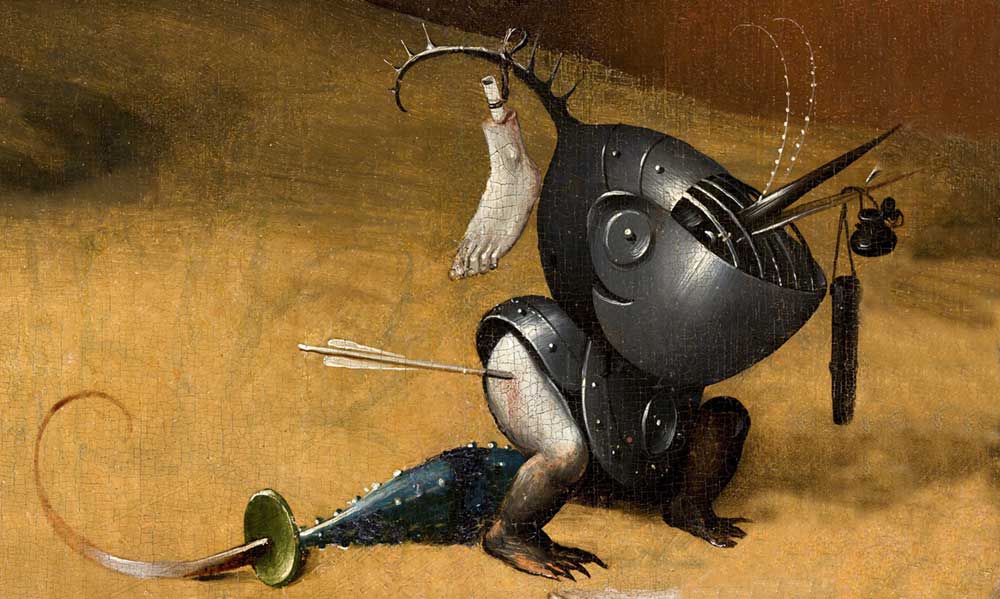
I think we tend to create inward forms of our own — adopted, that is, from things we encounter outwardly — and then stalk each other with them.
This process is writ large on the social and political landscape; but it begins inside us. We love nothing better than to outsource the blame for this process; in this way, we become, unwittingly, spiritual imperialists.
If a human being really wants to understand who they are, it involves introspection and suffering. We are meant to look very closely and critically at what we are, inside ourselves, and try to discern what is true about the way we work within all the intimate and invisible cogs and years that make up our psyche. To engage, in other words, in an attempt at some objectivity about the way all our disparate parts function together. Any effort in this direction quickly begins to yield evidence that we are filled with grotesque contradictions; yet we willfully ignore them.
It takes a special, yet entirely ordinary and ubiquitous, kind of denial to not see this. The odd thing is that everyone has become an expert in this. When I was an alcoholic, I was unable to see it; and in the same way, we are unable to see the insides of ourselves, because we don’t want to suffer them.
This takes me into territory where I would rather make everyone outside myself suffer for what I am. I think, from what I see, that I would much rather make others suffer than suffer myself, inwardly. Yet it is exactly this inward suffering of what I am, my own contradictions, that leads me towards compassion — both towards myself, and everyone else locked in this iron maiden of contradictions.
Alas. This is where we find ourselves as creatures or societies. We would rather craft our own forms and then use violence — literally, violence, as with militant religious practice (the most obvious example) to force others to conform to them. Politics is just another form of this; the dialogues deviate from compassion into contempt, devaluation, and compulsion. Our fear-based media feeds us a steady diet of these destructive impulses, and no one ever stands up to say, stop.
Perhaps we can’t be blamed for this collective failure. No one really wants to suffer; yet if we want to outgrow the (at best) adolescent impulses which rule us, we have to.
All the great traditions understood this. There is a requirement for suffering. One must suffer in order to see what one is and how one actually behaves towards others. This is a meal that needs to be eaten many times during a life, and digested over and over again, because it has an endless number of flavors and textures.
It’s much easier to repeatedly cook and serve a bogus dish consisting of rice and a standard sauce; it keeps a person alive, and makes no demands. When one settles over and over again for the same dishes, cooked in the same fast food restaurant, one gains safety — but at the expense of imagination. This isn’t to say that consistency is invaluable; but one needs to suffer one’s consistency along with everything else. No tree grows strong unless it is shaken by the wind.
It’s strange, the way we inflict ourselves on one another without any shame in the microcosm of our own lives, yet blame the world at large for behaving this way on the inflated scale of society — and, yes, even civilization itself. We don’t see that it begins here at home, inside ourselves.
Perhaps that realization is just too painful for us to face; my drinking was like that, until I finally realized that if the drinking did not go, I would. It was a matter of life and death; and the only way to resolve it was through even more suffering.
I endured, because there was no other choice.
There are days when I wonder whether we can, as mortal beings, wake up in the morning to confront our own iniquities and admit that they defeat us here at home, inside ourselves, before we are defeated by the world at large. If I don’t take responsibility for what I am — if I don’t suffer what I am, which is what I mean by take responsibility — how can I expect anything outward to be different?♦